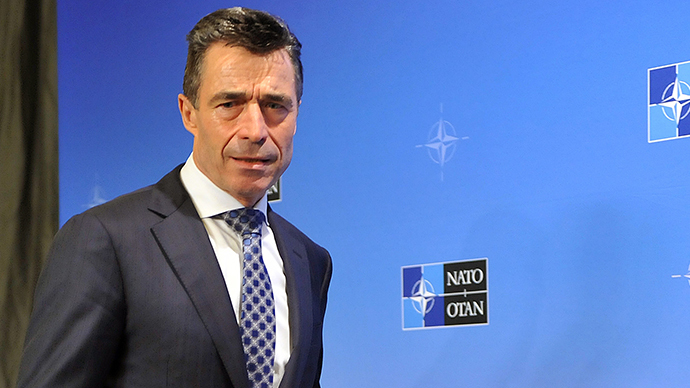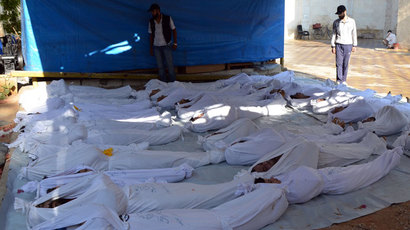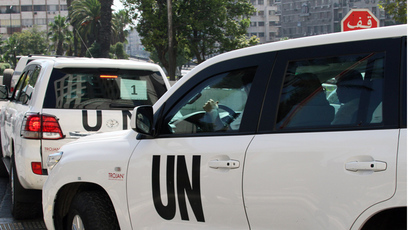For individual allies to decide their response to Syria – NATO chief

NATO’s secretary-general has stated that it is for “individual allies to decide how they will respond” to the Syrian crisis, adding he does not foresee the bloc’s further role except in deploying Patriot missiles to Turkey.
Follow RT's LIVE UPDATES on Syria 'chemical
weapons' crisis
“I don't foresee any further NATO role,” Anders Fogh Rasmussen said at a press conference on Monday. However, he said the bloc still conducts “closed consultations between allies.”
Rasmussen added that he had seen concrete evidence that made him convinced “not only that a chemical attack had taken place, but… also convinced that the Syrian regime is responsible.”
Yet he believed any subsequent strikes against the country were
fully up to the discretion of the constituent states,
adding that it could take time to build internal support.
He stated that he could not discuss evidence presented to him thus far. “I do not comment on intelligence reports,” he affirmed. UN chemical weapons inspectors left Syria on Saturday, and it will likely be three weeks before they provide the public with their analyses. However, the US is pressing ahead with its claims of concrete evidence.
Russian Foreign Minister Sergey Lavrov said on Monday that a 'regime of secrecy' by the West is unacceptable with regards to evidence on an alleged chemical weapons attack in Syria. “If there truly is top secret information available, the veil should be lifted. This is a question of war and peace. To continue this game of secrecy is simply inappropriate,” Lavrov said in an address to students of the Moscow State University of International Relations.
Support in the ‘democratic counties’ being referred to by Rasmussen is sparse. A BBC poll published on Monday found that 71 percent of people thought the British Parliament was right to reject military intervention in Syria, while 72 percent said they did not think the move would negatively impact UK-US relations. A further two thirds said they would not care if it did.
French opinion is also heavily weighted against the move, despite
French President François Hollande stating in the wake of the UK
Commons vote against military action that he supported a “firm”
response. Fifty-nine percent of French voters oppose
involvement in an airstrike by their nation, according to IFOP
poll results published on Saturday.














